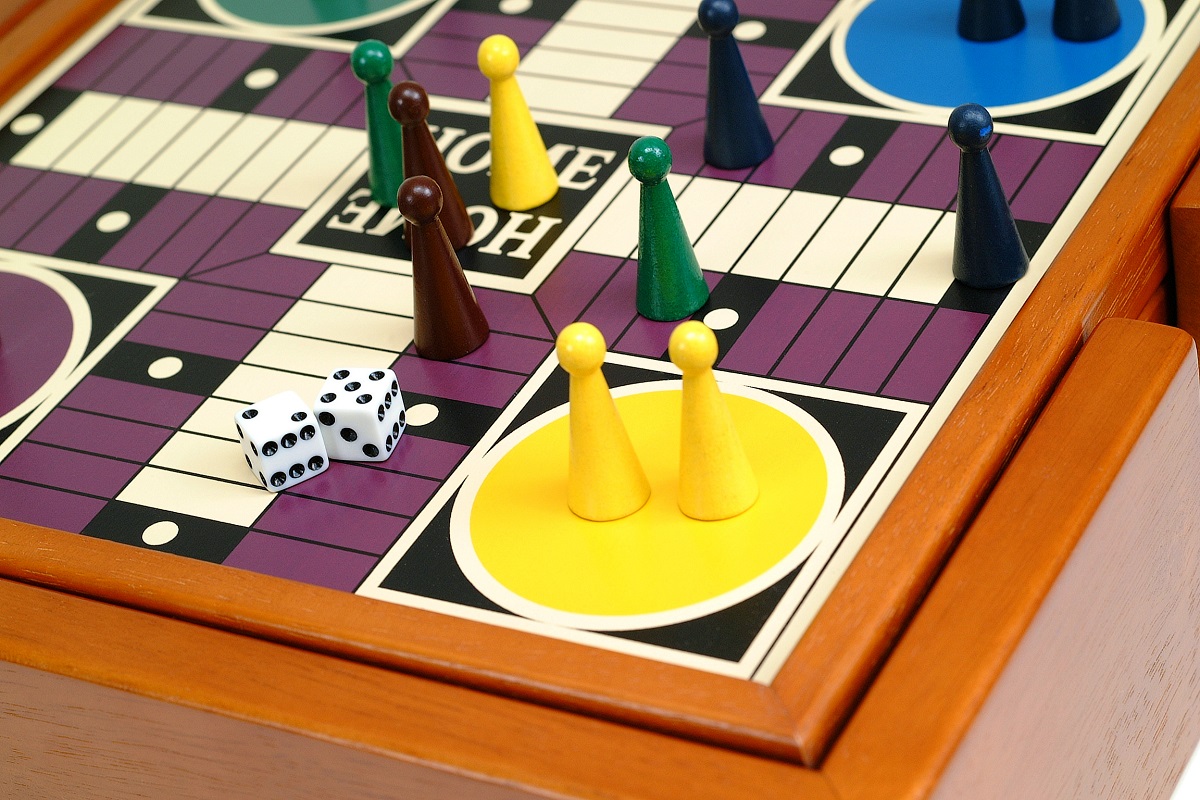Ludo, this favourite childhood pastime has fascinated all of us at some point or the other. You can relive the roller-coaster ride of emotions viz. happiness, thrills, satisfaction, anxiety, frustration etc. coursing through your veins, when with the successful roll of six-sided dice, your ludo token makes a triumphant entry into the colour coded winning house or thwarts the march of your opponent.
For 14-year-old Ahaan in Kalka Ji and eight-year-old Naman in Dilshad Garden, this traditional board game holds an irresistible appeal, as the movement of the pawns on the square board simply holds them in thrall.
The discovery of wall illustrations of the game at Ellora testifies to its hoary past. During the Mughal era, this indoor board game flourished under the name ‘Pachisi’.
Advertisement
Abul Fazl, the celebrated court historian and M L Rousselet, the eminent French traveller-cum author described in vivid detail Akbar’s enthusiastic participation in the games being played in Fatehpur Sikri during festivals.
A spacious ‘Pachisi’ courtyard was specially engraved with square boxes on the brick flooring in a large outdoor area, hemmed in by the fort complex on one side and a picturesque garden on the other.
Depending on the role of the dice by the emperor sitting at the centre, slaves donning colourful attire would hop from one square to another in the courtyard.
Subsequently, this indoor game found ready acceptance among the masses, with different variants being played on embroidered cloth and slate, with staves, seashells and seeds improvising for dice.
It proved to be a popular draw with the common folk, transcending barriers of age, caste, creed, language and religion. In 1938, the ‘Pachisi-A Game of India’ was successfully rolled out in Pennsylvania.
Although the traditional board game genre started losing its sheen during the 1990s, it regained its popularity during the much-dreaded contagion. With the advent of gaming technology, virtual versions of this board game literally received a shot in the arm, with an impressive uptick in the number of active users and downloads on various online platforms.
As an avid young player posted on Twitter: “Dear Ludo, Thank you for being our only saviour in these quarantine days.” During the prolonged Covid-induced shutdown, the various online app-based games viz. Ludo King, Ludo Star, Ludo Classic, Ludo Skills etc. soared in instant popularity as an ideal model for spending quality time, both at home and also with friends in remote corners of the globe.
Besides being a stress-buster and confidence booster, ludo helps in sharpening cognitive abilities, basic calculating skills, honing inter-personal & problem-solving capabilities, strengthening familial bonds and above all, teaching one to be resilient in different life situations.
Just as the pawns have to circumvent several hurdles to reach the central point, this strategic board game prepares one mentally to face the unexpected twists and turns of life with equanimity, perseverance, and a never-say-die attitude and real positive intent. After all, isn’t life akin to ludo?
Advertisement










